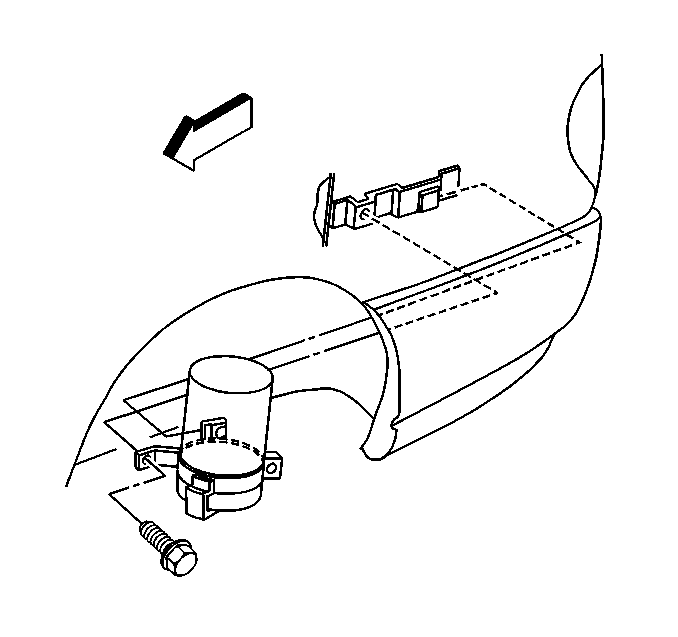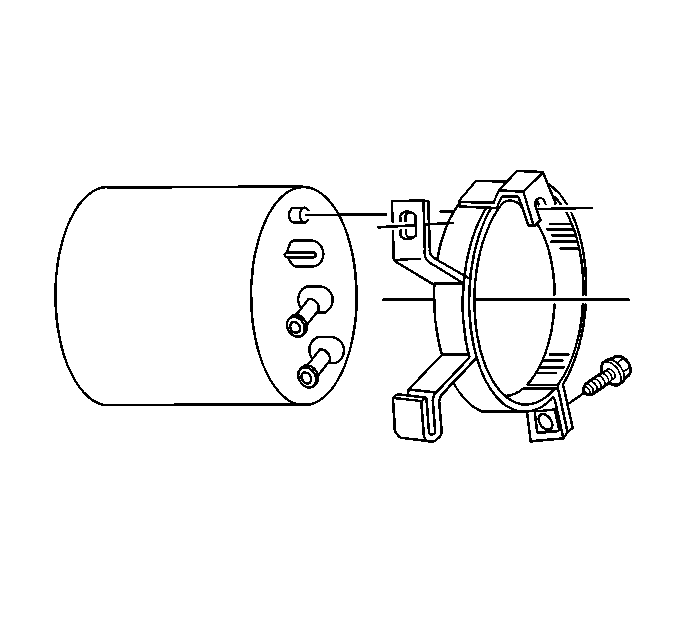Removal Procedure
Important: To prevent EVAP system contamination, clean the pipe connections before disassembly.
- Raise the vehicle. Refer to Lifting and Jacking the Vehicle in General Information.
- Remove the left rear wheel. Refer to Tire and Wheel Removal and Installation in Tire and Wheels.
- Remove the access panel from the left rear inner fender.
- Mark the EVAP hoses/pipes (3, 4) for installation on the new canister.
- Disconnect the EVAP hoses/pipes (3, 4) from the EVAP canister fittings (1, 2).
- Remove the EVAP canister bracket to body bolt.
- Remove the EVAP canister assembly from the body
- Remove the screw from the EVAP mounting bracket.
- Separate the EVAP canister from the EVAP canister bracket.



Installation Procedure
- Install the EVAP canister into the EVAP canister bracket.
- Reinstall the screw into the EVAP canister mounting bracket.
- Position the EVAP canister assembly to the body.
- Reinstall the EVAP canister bracket to body bolt.
- Connect the EVAP hoses/pipes (3, 4) to the EVAP canister fittings (1, 2).
- Install the access panel in the left rear inner fender.
- Install the left rear wheel. Refer to Tire and Wheel Removal and Installation in Tire and Wheels.
- Lower the vehicle.

Notice: Use the correct fastener in the correct location. Replacement fasteners must be the correct part number for that application. Fasteners requiring replacement or fasteners requiring the use of thread locking compound or sealant are identified in the service procedure. Do not use paints, lubricants, or corrosion inhibitors on fasteners or fastener joint surfaces unless specified. These coatings affect fastener torque and joint clamping force and may damage the fastener. Use the correct tightening sequence and specifications when installing fasteners in order to avoid damage to parts and systems.
Tighten
Torque the screw to 3 N·m (27 lb in).

Tighten
Torque the screw to 3 N·m (27 lb in).

